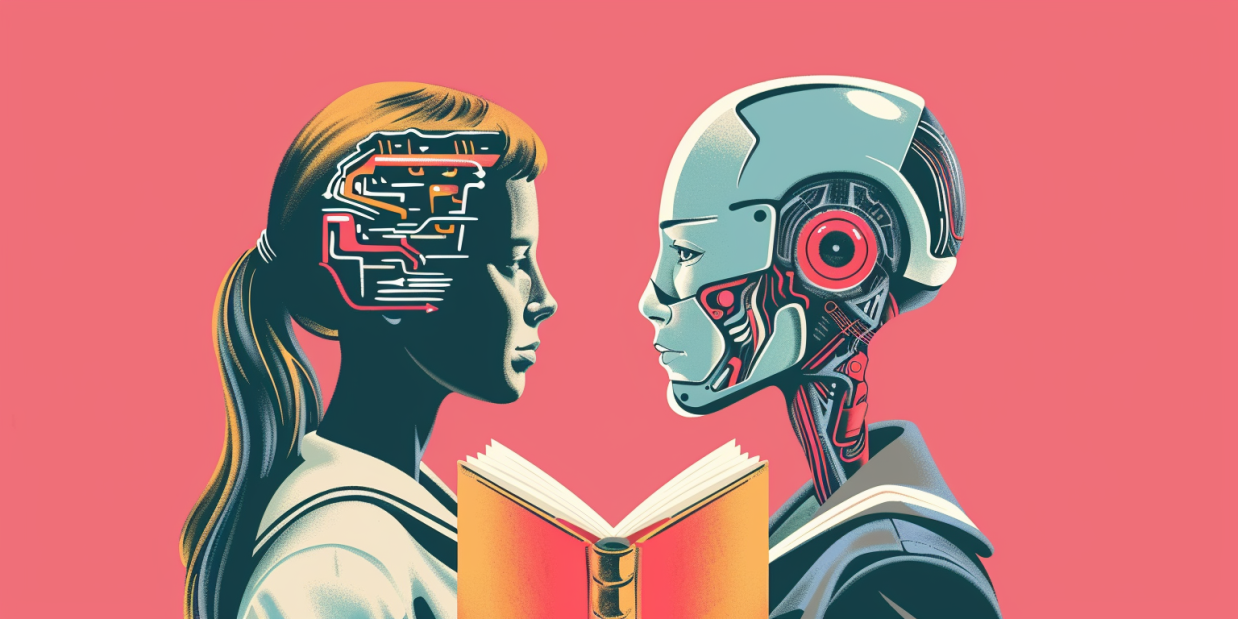The Future of AI in Education: Teachers vs. Technology
Find out how AI is changing education for the better. Learn how AI and teachers work together to improve learning and shape the future of teaching jobs. Read our blog to dive deeper!
Get referred to your dream company
Sections
The integration of Artificial Intelligence (AI) in education is transforming the traditional classroom, offering personalized learning experiences and operational efficiencies. However, as AI's role in education becomes more prominent, questions arise about its impact on teaching jobs. Will AI technologies replace educators, or can they coexist, each enhancing the learning experience in unique ways? This blog post explores AI’s evolving role in education and its implications for the future of teaching jobs.
AI’s Growing Footprint in Education
AI is making significant inroads in education through adaptive learning platforms, automated grading systems, and AI-powered tutoring bots. These technologies personalize the learning experience, providing students with tailored instruction and feedback that adapt to their learning pace and style. AI can also handle administrative tasks, freeing up educators to focus more on teaching and less on paperwork.
Adaptive Learning Platforms
Adaptive learning platforms use AI to assess students’ knowledge levels and learning styles, adjusting the content accordingly. This personalized approach helps students master topics at their own pace, providing challenges just beyond their current knowledge level to promote growth without causing frustration or disengagement.
Automated Grading and Feedback
AI-driven systems can grade assignments and exams, providing immediate feedback to students. While primarily used for objective, multiple-choice assessments, advancements in natural language processing are enabling AI to evaluate more subjective responses and essays.
AI Tutors and Assistants
AI-powered tutoring systems offer additional support to students, guiding them through complex problems and concepts outside of classroom hours. These assistants can answer questions, provide explanations, and even suggest study resources, allowing for a more flexible and accessible learning environment.
Teachers vs. Technology: A False Dichotomy
The narrative that positions teachers against technology overlooks the complementary nature of their roles. Rather than competing, AI and educators can synergize, each bringing distinct advantages to the educational process.
Enhancing Teacher Effectiveness
AI can relieve teachers of time-consuming tasks such as grading and administrative work, allowing them to devote more time to what they do best: teaching, mentoring, and inspiring students. With more time for individual student interaction, teachers can address specific learning needs and foster a supportive, engaging classroom environment.
Fostering Personalized Learning
While AI can offer personalized learning paths based on data-driven insights, teachers bring empathy, understanding, and the ability to inspire—qualities that AI cannot replicate. Educators can use AI-generated insights to better understand their students' needs and tailor their teaching strategies accordingly, enhancing the learning experience.
Navigating the Ethical and Emotional Landscape
Teachers play a crucial role in navigating the ethical and emotional aspects of education. They are instrumental in teaching values, ethics, and emotional intelligence—areas where AI has limitations. Teachers also play a key role in fostering a sense of community, belonging, and motivation among students, aspects that are vital for holistic education but beyond the scope of AI.
The Future of Teaching Jobs in an AI-Driven World
Rather than replacing teachers, AI is more likely to redefine their roles. The demand for educators who can integrate AI tools into their teaching, leverage AI insights to enhance learning outcomes, and provide the human connection that AI cannot, is set to increase. As education evolves, so too will the skills required from educators, with a growing emphasis on digital literacy, data interpretation, and the integration of technology into pedagogy.
Reskilling and Continuous Learning
The integration of AI in education necessitates a focus on reskilling and continuous professional development for teachers. Educators will need to become adept at working alongside AI, leveraging technology to enhance the learning experience while maintaining the essential human touch that fosters deep learning and student well-being.
Conclusion
The future of AI in education is not a tale of teachers versus technology, but rather one of collaboration and complementarity. AI holds the potential to revolutionize education, making learning more personalized, efficient, and accessible. However, the value of human teachers remains irreplaceable, with their ability to inspire, mentor, and navigate the complex emotional and ethical landscape of education.
As we navigate this transformation, the focus should be on how AI can enhance the educational process, support teachers, and improve learning outcomes. By embracing AI as a tool for empowerment rather than a threat, the future of education can be one where technology and teachers work hand in hand to shape a brighter, more inclusive future for all learners.
Your career is worth investing in.
Get unlimited referrals with Premium.
Community
© 2025 Crucible Fund LLC. All rights reserved.
